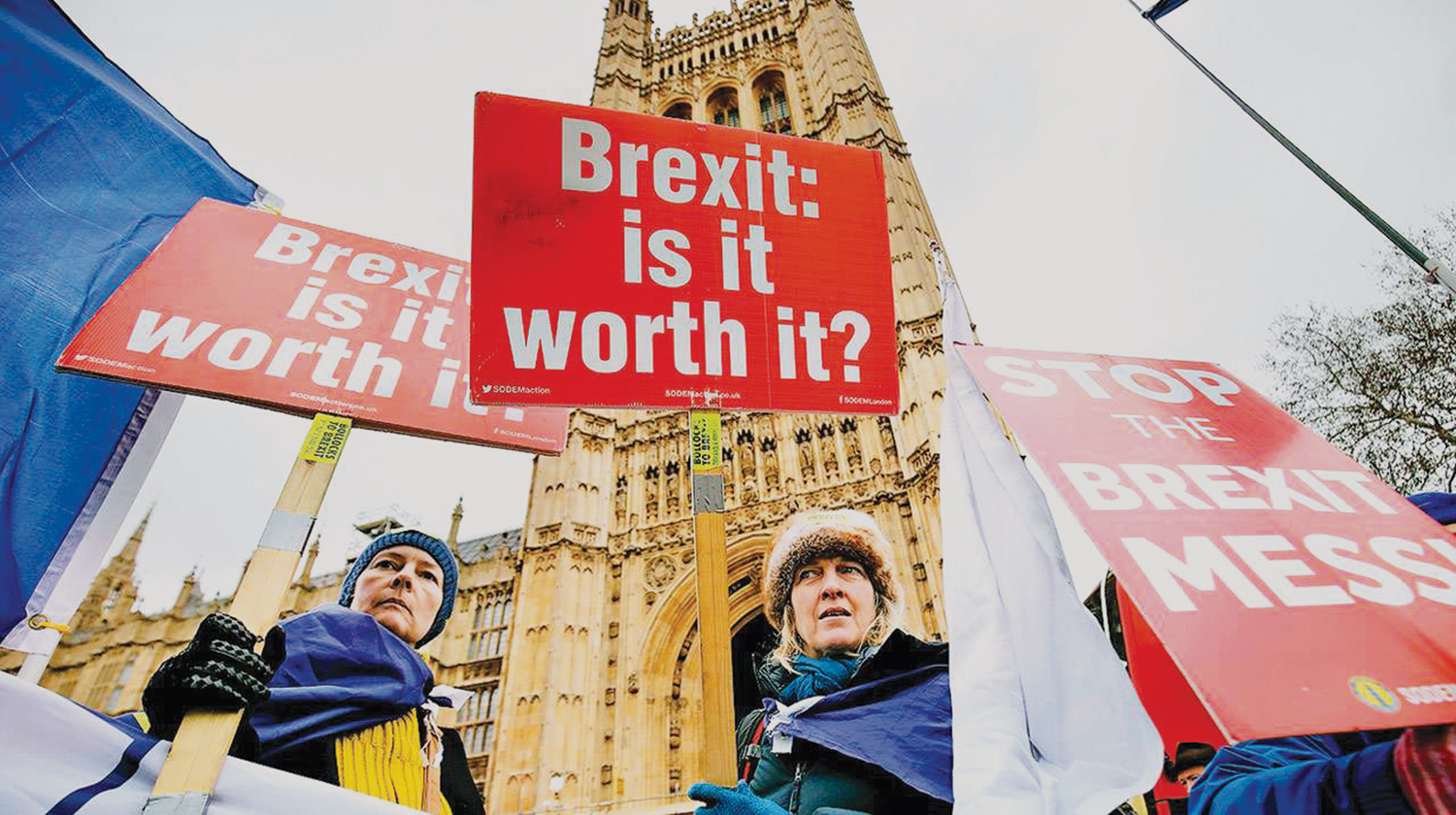

LONDON: Britain will eventually leave the European Union and agree a free-trade deal with the bloc, according to the vast majority of economists who were, however, split on whether the two sides would divorce on October 31.
Prime Minister Theresa May failed to get her Withdrawal Agreement ratified by the British parliament on three attempts so the EU allowed a Brexit delay until the end of October, giving May time to try to convince lawmakers to reach agreement.
When asked if the latest deadline — delayed from March 29 — would be extended, 17 of 33 economists who answered an extra question in the May 3-10 poll said it would not.
“Failure to come to an agreement runs the risk that the EU will simply lose patience in October and not grant any extension,” said Peter Dixon at Commerzbank.
“We are by no means out of the woods.” It’s nearly three years since the June 2016 referendum when Britons shocked much of the world and voted to leave the EU but it is still unclear how, when, or even if it will ever quit the club it joined in 1973.
But the median forecast in the latest survey gave the chance of a disorderly Brexit — where no deal is agreed and an outcome polls have repeatedly said would be harmful to both sides — at 15 per cent, as it was in March and April.
Only one of 50 respondents gave a probability above 50 per cent.
Still, as they have in all polls since late 2016 most economists said the two sides would settle on a free-trade deal. The second most likely outcome was again Britain as a member of the European Economic Area, paying into the EU budget to maintain access to the EU’s single market.
In third spot was Brexit being cancelled — once more ahead of Britain leaving without an agreement and trading under World Trade Organization rules, which came last.
“All options remain on the table in the UK, including no Brexit, a hard Brexit and even another extension beyond October,” said Kallum Pickering at Berenberg.
Britain avoided the recession predicted in the event the country decided to leave the EU and the median chance of one in the next year was only 20 per cent, down from 25 per cent given last month. For the next two years, the probability was an unchanged 25 per cent.
However, growth is expected to remain tepid and the world’s fifth largest economy will grow 0.2-0.4 per cent per quarter across the forecast horizon, from here through to the end of 2020, unchanged from last month’s poll. — Reuters
Oman Observer is now on the WhatsApp channel. Click here



